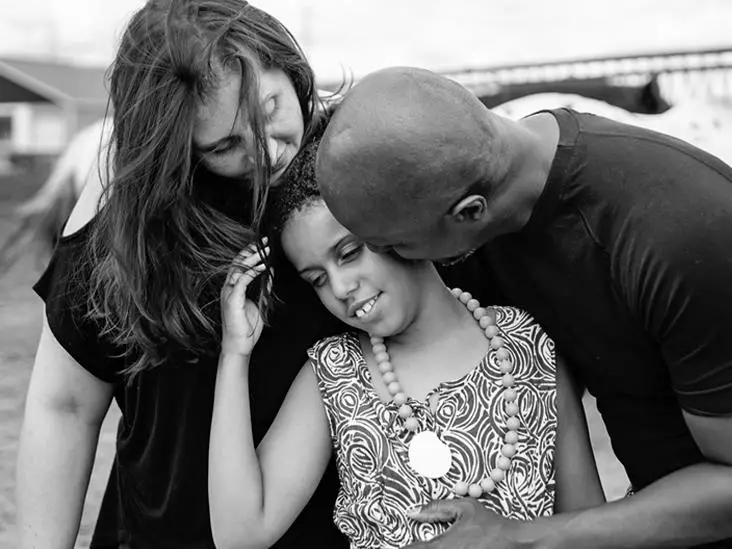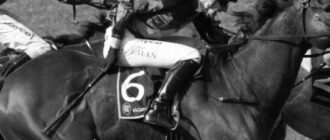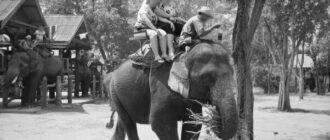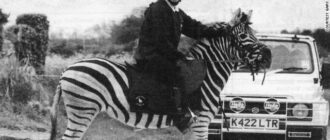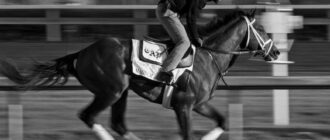Dominance hierarchies among horses? Do they have different levels of stress? These are questions we can ask ourselves, as well as our horses. Horses are highly social animals that need interaction with other animals. In fact, horses can develop negative psychological problems if they are not exposed to other animals. Young horses especially are at risk of these problems as they do not have a role model. Without interaction with their fellow herd members, they will become confused and possibly resentful.
Dominance hierarchies among horses
Dominance hierarchies among horse breed species have long been a subject of controversy, and there’s no consensus on whether they’re real or not. However, there are some observations that suggest they’re real. Observations in horse breeding publications tend to be inaccurate, and the claims of some horse breeders may not be true. One example of this is when a horse owner claims to see dominance hierarchies among their horses, but this is not a sign of intelligence or integrity.
While dominance is a highly regarded characteristic of equine social life, recent studies have raised doubts about its reliability. It’s easy to think that animals with the highest dominance levels survive, but the reality is far from neat and tidy. For this reason, ethologists study horse breeds to determine which animals are dominant. Then, they hope to uncover the truth about ranking through further studies.
One study also investigated whether horses can differentiate between dominant and submissive body postures. Horses were given a four-day trial to approach either human demonstrator. They were not required to learn the human signals to recognize the demonstrator. The results show that horses can distinguish between the two types of human body postures, and this could explain the differences between the two types of human body postures. Further research may also include the neutral posture.
Sense of smell
Horses have two olfactory systems. The top of the nasal passages, called Jacobson’s organs, contains sensory fibers that are part of the olfactory nerve. This organ detects pheromones, which are molecules carried through the air and carried to the brain. When a horse detects an intriguing smell, it will curtail its top lip and raise its head. This posture, called a flehmen, is a way of marking territory.
Some horses respond negatively to certain scents. Some horses respond to other horses’ manure. Other horses pay particular attention to aggressive horses. Some horses respond negatively to certain smells because of past negative experiences. A horse with poor socialization can develop a phobia to a particular smell. Keeping an eye on your horse’s social skills can prevent negative experiences. However, there are some horses with strong and well-developed sense of smell.
Horses use their noses to recognize their neighbors and friends. Their nostrils are more sensitive than ours, so a horse’s nose is an essential part of their social life. While we use our vision to make decisions and communicate with others, horses use their five senses – smell, taste, sight, and touch – to understand the world around us. This is in stark contrast to how humans communicate. Our evolution as a species has been geared toward our hunter-gatherer-gatherers lifestyles, whereas horses rely on their sense of smell to identify their friends.
Loafing behaviours
Whether your horse is a lover of the outdoors or an indoor dweller, there are some common loafing behaviours that may surprise you. Horses may be known to vocalize when they are hurt or threatened by an animal, but their behavior is also a result of displacement and self-reinforced behavior. Some of these horses may even suffer from skin diseases or pain as a result of the behavior. These types of behaviors may be triggered by environmental stressors, including heat, cold, or cold. The best way to manage them is to provide adequate stimulation and social contact.
Moreover, social loafing has been studied in various contexts. Observations of equine groups suggest that some horse breeds are more prone to social loafing than others. Studies have shown that social loafing in humans is affected by culture and gender. Individuals in individualistic cultures tend to loaf more than those in collectivistic societies. Conversely, individuals in groups work harder when they are facilitated by others. Groups also tend to perform better than individuals when they efficiently coordinate their efforts.
Stress levels of horses
Researchers in Spain believe they can measure the stress levels of horses through their eyes. Dr. Ester Bartolome Medina, a professor at the Agro-Forestry Services, believes the temperature of the horse’s eyes can reflect the stress level the animal feels while competing in a show event. She tested jumpers before and after competition and recorded their heart rates. She hopes that this test can help improve the performance of young horses.
Horses’ stress levels can be reduced by modifying their environment and introducing a change in their routine. In addition to changing the environment, poor diet can lead to increased levels of stress in horses. Horses can also respond to stress by urinate more frequently than usual and produce more manure. Stress can also lead to diarrhea or other problems. Equine athletes may develop increased stress levels after racing than non-professional athletes. A change in training schedule can also change a horse’s stress level. If the horse is uncomfortable during exercise, stress levels will be elevated.
For the present study, researchers found that moderate or low stress enhances trainability in horses, but prolonged stress disrupts memory and can lead to abnormal behaviours such as depressive-type behaviour. To improve this knowledge, future studies should evaluate other stress parameters, including motor and sensory laterality. This research may also point to the effects of stress on horse training and mental health. However, the study’s sample size is limited. Nevertheless, a larger sample size may be necessary for reliable stress assessment.
Training
If you’re wondering why your horse doesn’t socialize with other horses, consider this. Horses are family-oriented animals, and being alone can cause them to develop negative psychological problems. It’s crucial for horses to spend time with their herd in order to feel secure and to develop the social skills needed to get along with other animals. This is especially important for young horses, as being separated from the herd will not provide them with a positive role model.
In a study, researchers found that some horse breeds were unable to socialize and were prone to developing stressful behavior. The reason they can’t socialize and entertain themselves is because they are stall-bound for long periods of time. Due to the set feeding times, these horses tend to sit with an empty stomach. Because of these problems, barns often construct paddocks and stalls in such a way as to discourage socialization and interaction.
If your horse does not socialize well with other horses, it’s time to take action. Your horse needs a stable, predictable environment to stay calm and healthy. Excessive stress from other animals and handlers can negatively affect the horse’s behavior. An aggressive horse can have serious consequences for the herd, so addressing the problem before it’s too late is crucial. But what if you don’t have the time to socialize your horse?
Companionship
If you have a horse that does not socialize well, there are some ways to overcome this problem. For starters, horse breeds that do not socialize well should not be kept in a confined space. Instead, try to pair up two horses that will tolerate each other and not be aggressive toward each other. You should introduce your new friends to each other slowly, but make sure you stay with them during the introduction.
If you’re a person who enjoys spending time with animals, there are a few dog breeds that are known to get along with horses. Among these are the German Shepherds, Jack Russell terriers, Australian Shepherds, and the Golden Retriever. Other dog breeds that have good compatibility with horses include Jack Russell Terriers, Australian Cattle Dogs, Labrador Retrievers, and Great Pyrenees.
If you have a large dog and horses, there are a few reasons why it won’t get along. First, these dogs aren’t naturally good with horses, but they can be trained to stay away from livestock. Second, they don’t travel well. They are hard to transport and uncomfortable in public situations. Therefore, if you own a horse farm, a quiet dog will make life on the property more pleasant for everyone.
Owning a horse comes with numerous risks, and it is essential to educate yourself about these risks. To keep your horse healthy and safe, be sure to take the appropriate steps to prevent any incidents. Read on to learn more. Here are some of the most common risks associated with owning a horse. Make sure to follow all of the rules and regulations of your breed’s association, or check out a website dedicated to equine safety.
Identifying risk factors
Owning a horse comes with many risks of transport are just one example. Injuries from transport may occur to the horse in different ways, ranging from shallow wounds to broken bones. People who do transport their horse are at a higher risk of injury, and many people have a high rate of injuries when the horse is moved from one place to another. However, there are some things you can do to mitigate the risk of transport-related injuries.
For this study, a postal questionnaire was sent to all owners of a randomly selected horse. In addition, multiple logistic regression analyses were conducted to identify the factors associated with injury. A binary outcome variable was defined as a horse having suffered an injury within the past year. Ultimately, the authors found that there were several risk factors that could be changed. In other words, identifying risk factors of owning a horse may prevent laminitis before it starts.
Survey-based studies have limitations. Participants are not randomly chosen. There is no national database of horse owners in New Zealand, so the authors chose respondents based on their industry knowledge and reputation. The study also relies on online survey distribution, which selects for respondents who have internet access. Telephone contacts with industry leaders and administrators may have increased awareness of the survey. And, of course, there is always the risk of accident or injury.
The study was conducted according to the rules and guidelines of the Faculty of Veterinary Medicine at Benha University. Animal ethics committee approval was obtained before the study could commence. Participants provided informed consent prior to the collection of their blood. However, these owners may have been induced to consent despite their lack of understanding. By using these rules, people can help avoid risky situations that can lead to injuries. This will help protect them from the risks associated with owning a horse.
While the Australian Code of Transport recommends that people transporting a horse have five years of driving experience, recent research suggests that the longer the driver has been handling horses, the lower their risk of an injury. This is particularly true for those with restricted or learner licenses. This means that even if you’re familiar with the horse, you still risk being injured. The chances of transport-related injuries increased threefold if the driver has a restricted or learner license.
Educating yourself about horses
Before you begin a horse-riding career, you should educate yourself about horse safety and care. While horse riding can be fun and rewarding, it can also be self-critical and dangerous. It is important to find the right horse for your level of skill and fitness. You should read books on horsemanship and horse safety to understand the risks involved. You should also visit a reliable horse trainer to learn how to handle your new animal.
Before you begin riding a horse, you should learn as much as you can about horse behavior. Always remember that horses cannot see in front of them, so approaching from the side or behind them can cause an incident. Also, remember that horses are flight creatures, and they can take off at a moment’s notice if they feel threatened. Be sure to practice calming techniques to keep your horse under control and avoiding any possible mishaps.
Learning about the habits of your horse will also help you prevent them from becoming dangerous. Horses develop bad habits through repetition. Try not to allow your horse to develop these bad habits until it gets comfortable with it. Examples of bad habits include stopping to eat grass while leading, running into people, or continuing to walk after a stop. You will need to modify your training techniques if you want to prevent your horse from developing these habits.
Equine purchases are an exciting experience, but don’t make a hasty decision. Before purchasing a horse, it is important to research its responsibilities and costs. It can ruin your fun horseback driving and riding experience. If you buy the wrong horse, you’ll end up spending too much time and money on your new pet. Also, make sure you get a contract before you buy your horse.
Despite all the benefits, riding a horse can be dangerous. Research suggests that horses have inherent fears of prey animals. While horses are highly unpredictable, they can be made safer through the reconfiguration of their own safety needs. As McGreevy and colleagues note in their publication, the value of safety in the lives of humans and animals cannot be underestimated. When these feelings are recognized and addressed, they can help reduce the risk of injury and death.
Keeping your horse safe
Owning a horse comes with many responsibilities. While you can’t control all situations, there are several things that you can do to keep your horse safe. First of all, always have your cell phone with you, just in case! Make sure to contact a veterinarian if you suspect something is wrong with your horse. Also, make sure to tie your horse properly, as a loose or poorly tied tie can make your horse spooky. Make sure you have an immovable object nearby to hold the reins, and make sure that you have a safety helmet and proper clothing on your horse.
When approaching a horse, never get too close to it. Horses have the ability to associate things with good or bad experiences, so approaching them directly from behind is not a good idea. A horse can also become startled and kick if they feel frightened. It’s best to stay two horse lengths behind your horse to avoid having to dodge an unruly horse.
When transporting a horse, always consider the weather. Heat and cold are both dangerous conditions. Keep in mind that horses can’t complain, but they do need fresh water and a place to rest. Make sure your horse has ample shade and isn’t exposed to heat or rain. If you’re taking your horse for a trip, it’s important to make sure it’s comfortable so you can move quickly.
Maintaining your horse’s hooves is an essential part of horse care. Regularly clipping their hooves will prevent fungal and bacterial infections. Horses were designed to roam throughout the day, so avoid stalling your horse for long periods of time. In addition to avoiding bacterial and fungal infections, regular hoof trimming will also keep your horse healthy. This means that your horse’s hooves will be properly maintained, which will help you maintain a balanced horse.
Proper nutrition is also a key part of caring for your horse. A basic diet for a horse should include grass or good quality hay that is free of dust or mold. Make sure you have clean, unfrozen water available at all times. A good salt block can encourage your horse to drink more water. By making sure your horse has the right amount of nutrition, you’ll keep your horse healthy for a lifetime.
Keeping your horse healthy and happy
One of the most basic care requirements for your horse is clean, fresh drinking water. This is crucial for digestion and helps keep the horse hydrated. The water bowl should be changed every six to eight hours, otherwise your horse will suffer from tons of health problems. It’s also important to provide a comfortable, dry walking area. Make sure to regularly check the horse’s hooves for any issues. The following are some easy ways to keep your horse happy and healthy.
Vaccinations. Vaccinations are important for the health of your horse, as these prevent serious diseases and give it energy to recover from any illness. The list of recommended vaccines can be obtained from your veterinarian. Your veterinarian will also be able to recommend the best vaccinations for your horse’s health. Routine vaccinations should also be performed on your horse yearly. The veterinarian can also recommend the most necessary vaccinations for your horse.
Socialization. Horses are herd animals and can become lonely and sad if left alone. If they lack social interaction, they may start to pace the fence line, search for company, and lose weight. Horses thrive on social interaction, so make sure to schedule play dates or go on hikes with your horse. You’ll be surprised by how much your horse will appreciate the company and interaction with other animals. The benefits of socializing will be evident when you see how much more relaxed and content your horse is.
Taking good care of your horse is one of the most important aspects of being a good owner. Horses are sensitive, and they can recognize human emotion. As such, it takes a lot of extra time and attention to keep your horse healthy and happy. It is crucial that you understand your horse’s needs. In addition, you must always follow the correct techniques when riding your horse. You should also make sure that your horse gets enough exercise and is happy.
Providing a day off is crucial. Your horse deserves a rest day at least once a week. Don’t overwork your horse and give it a day off every two or three weeks. Rest allows your horse to relax and recuperate from muscle wear. This will improve their overall health and happiness. As a horse owner, you should always remember that rest is just as important as exercise. Your horse’s physical and mental condition will greatly affect the happiness of your horse.
